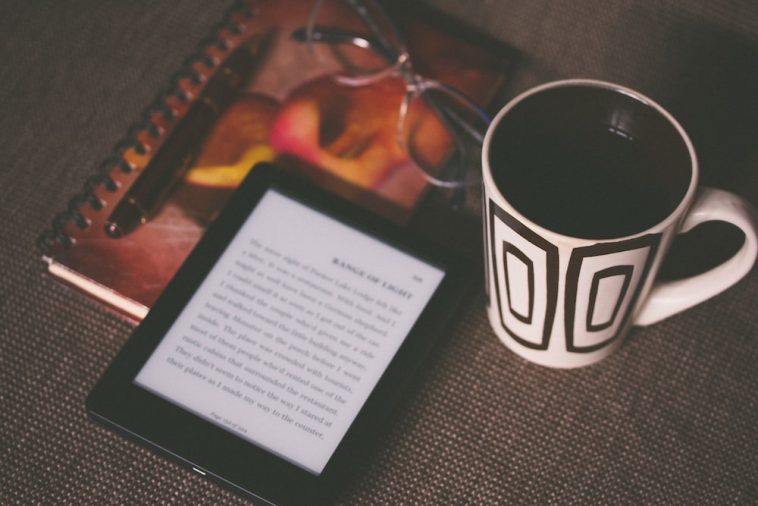Introduction.
With so many eBooks out there, finding the ones you want to read for free can be both exciting and a little overwhelming.
From Apple’s own Books app to apps like Kindle and websites that offer free public domain books, there are several easy, legit ways to access free eBooks directly on your iPhone.
In this guide, I’ll walk through some of the best sources and methods to help you get started, cover the pros and cons of each option, and share a few tips to make sure your reading experience is as enjoyable as possible.
Let’s jump into it!
How Do I Get Free eBooks On iPhone?
1. Apple Books: Free eBooks in the Store.
Apple’s Books app is a great place to start. This app comes pre-installed on most iPhones, making it a quick way to search for free books. Here’s how you can do it:
- Open the Apple Books app on your iPhone.
- Tap “Book Store” at the bottom, then head to “Browse Sections.”
- In the Categories, tap on “Free” or search for specific genres or “classics.”
Apple Books often has free versions of classic novels or limited-time offers from newer authors. While the selection isn’t exhaustive, it’s a convenient place to find well-known books in the public domain, such as works by Jane Austen or Charles Dickens.
2. Project Gutenberg: A Goldmine of Free Classics.
If you’re interested in classic literature or older works, Project Gutenberg is a fantastic resource. With over 60,000 free eBooks, you’ll find everything from “Pride and Prejudice” to “Dracula.”
To access Project Gutenberg on an iPhone:
- Go to Project Gutenberg’s website using Safari or another browser.
- Search for a title or browse by genre, language, or popularity.
- Once you find the book you want, download it in the “epub” format compatible with Apple Books, then open the downloaded file to save it directly to your Books app.
3. Libby by OverDrive: Borrow eBooks from Your Local Library.
Libby, created by OverDrive, allows you to borrow eBooks for free from your local library. All you need is a library card from a participating library, and you’ll get access to a huge range of titles for free.
- Download the Libby app from the App Store.
- Sign up with your library card and locate your local library.
- Browse or search for eBooks and borrow them directly through the app.
Libby’s selection includes bestsellers, new releases, and audiobooks, which makes it a great choice if you want something more current than the classics you’ll find on Project Gutenberg.
4. Amazon Kindle App: Free Books and Special Offers.
Amazon’s Kindle app is another popular option. Kindle offers thousands of free books on their platform, especially older books and classics.
They also provide rotating free offers for newer books if you’re a Prime member or through Kindle Unlimited, a subscription service that has a free trial.
- Download the Kindle app from the App Store.
- Sign in with your Amazon account, then head to “Top Free” or “Free Classics” to start exploring.
- You can also access Kindle Unlimited’s trial for broader selections if you want to try it out.
5. Open Library: Borrow Books Like a Digital Library.
Open Library is a non-profit digital library offering access to millions of eBooks, both free and available for borrowing. It’s a great alternative for those who want a library-like experience without needing a library card.
- Visit Open Library’s website on your iPhone.
- Sign up for a free account to borrow or download available books.
- Choose “Read” to access books directly on your phone without needing to download them.
Pros and Cons of Getting Free eBooks on iPhone
Pros:
- Cost-effective: No need to buy expensive eBooks when you can find tons for free.
- Convenience: Access books anytime and anywhere with just your phone.
- Variety: Between the classics, indie books, and library apps, there’s an impressive selection of genres and authors.
- Space-saving: Digital books won’t take up physical space, and you can have hundreds available at once on your phone.
- Flexible: Whether you’re into classic literature, current bestsellers, or audiobooks, you can find something in every category.
Cons:
- Limited Selection for New Titles: Many free books are older, public-domain works, so finding recent bestsellers without a subscription can be challenging.
- Short Borrowing Periods on Some Apps: Library apps, like Libby, typically have limited loan periods, which might be inconvenient for slower readers.
- Ads or Upsells: Some apps, especially free versions, include ads or will often prompt you to upgrade to premium content.
- Compatibility Issues: Not all eBook formats work well with every app, so you might need to convert files or use multiple apps.
Wrapping It Up
From free classics on Project Gutenberg to borrowing new titles through Libby, there are many ways to access free eBooks on your iPhone.
Each method has its perks and downsides, but with a little exploration, you’ll likely find the best fit for your reading habits.
So, what’s stopping you from loading up your iPhone with some great reads? Where do you plan to start?





GIPHY App Key not set. Please check settings